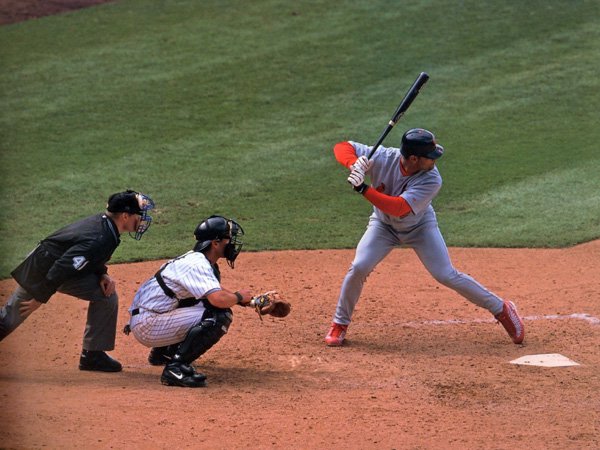Age Appropriate Skill Teaching
Question
I need some insight! I've managed a number of teams ranging from t-ball to coach pitch 8 year olds. In our league, 6 year olds play t-ball while 7 year olds play machine pitch. What are you're thoughts on whether bunting should be allowed for 7 year olds? If so, how do you recommend handling the coaching abuse (i.e. having the worst hitting kids always bunt)?
Answer
Bryan,
Thanks for your question and I hope I can help.
My thought on bunting is that too many kids don't know how to do it. I have a 14U select travelling team. We had 2 spots to fill for the fall and had an open tryout. I cannot tell you how many, pretty good ballplayers, I had at that tryout who could not or did not even know how to attempt to bunt. So it is my opinion that every ballplayer from the time they start hitting a pitched ball learn to bunt and bunt properly. I have seen many a game won, from little league to select to high school, on a properly laid down bunt.
With that said I will address your second question. As far as handling (having the worst hitting kids always bunt). It is my opinion that games are for what works. What I mean is what is best for the team and the player. If you have a boy who cannot hit a ball and has a history of swinging and missing, but he can bunt and put the ball in play, then you have him bunt. This is what he is successful at doing. I would never put a player in to pitch if he cannot pitch. You have to go with what will provide success for the player, and the team. In my coaching, we stress team over individual. I might have my cleanup hitter lay a sac bunt down to move a runner to third with no outs. My cleanup hitter is batting over .500 right now, but moving the runner to third when we need a run is most important for the team. Teaching kids this is very important.
Back to the player. If the coach knows that the player is not going to hit the ball, (I have been in that situation), but he and the player have confidence in their bunting ability, then have them bunt. The player will have more confidence and feel that he has helped the team more than if he strikes out again.
Just to mention, when I coached coach pitch, we had a no bunting rule so I have not had to deal with this. But I have had kids who were not good hitters. My recommendation: work on their hitting more in practice. When I had kids who could not hit, I would personally work with them extra (and demand that their parents worked with them outside of practice) on their hitting. The bad kids would get the extra batting practice, not the good kids. The bad ones need it more.
In the same manner, if a kid could not throw or catch at that age, he got more throwing and catching and I gave him homework. Practice is where you improve skills, not the games. If the kids or parents do not want to put in the extra time outside of practice, then it will show. You do have to teach the right mechanics though. If a kid has a bad swing, hitting 200 balls a day will not help.
My son, who is 13 playing 14, hits about 200 balls off a batting tee per day. He hits pitching at least 3 times per week and we throw at least 5 times per week. He loves baseball and it is his thing. He is talented, but his practice sets him apart from the other kids.
If the parents want their kids to get better, then 30 minutes in the evening will make a big difference. Work on eye hand coordination and a proper swing. Then when the coach sees them hit in practice, he will quit giving that bunt sign in the game.
God Bless,
Mike Boss
bat for an 11 year old
al div title


